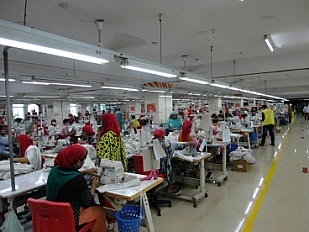Harry Wood | 18 December 2024
Female participation n RMG sector falls

Harry Wood | 18 December 2024

DHAKA - A recent study by the Bangladesh Institute of Development Studies (BIDS) has highlighted a troubling decline in women’s participation in Bangladesh’s garment sector, which has fallen from 56 per cent in 2014 to 53 per cent in 2023. Once a female-dominated industry with women constituting over 80 per cent of its workforce, the sector is now undergoing a profound transformation driven by automation and technological advancements.
Experts suggest there are several key reasons for this shift. The gendered nature of technological developments has created barriers for women, who often have limited access to training in textile engineering and new machinery. Additionally, many women leave the workforce around childbearing age, opting for self-employment or prioritising family responsibilities.
Dr. Binayak Sen of BIDS said there is a need for more research to better understand these trends, suggesting that comparisons with countries like Cambodia and Vietnam, which face similar challenges, could offer valuable insights.
Taslima Akhtar, chairperson of the Central Committee of Bangladesh Garments Sramik Sanghati, warned this decline could negatively impact women’s social standing and empowerment. A 2024 study in the Journal of Business and Management established a clear link between women’s participation in paid employment and their decision-making power within households.
To combat these challenges, Akhtar has called for targeted government measures, such as providing training for women on advanced machinery and introducing daycare facilities in garment factories to support working mothers. However, Dr. Sen has questioned the feasibility of government-led initiatives in a predominantly private sector and argues for broader, policy-level interventions to sustain female participation in the industry.
COMMENT: The diminishing presence of women in the ready-made garment (RMG) sector raises pressing concerns about its future workforce composition, wage equality, and labour rights. As the industry adapts to new technologies, stakeholders must address these issues to safeguard women’s empowerment and ensure the sector’s long-term sustainability.